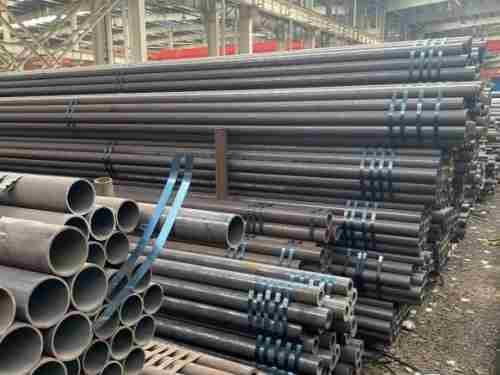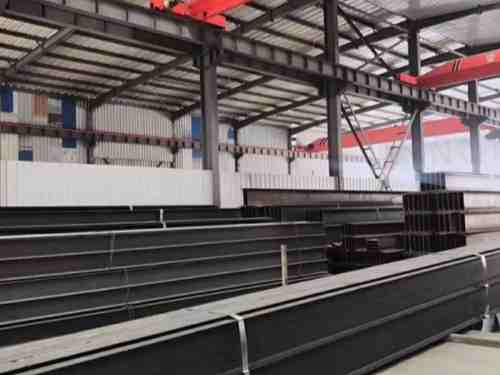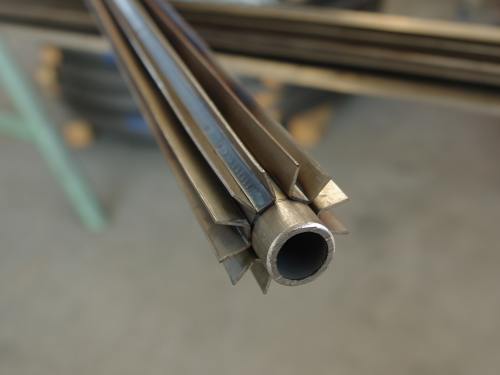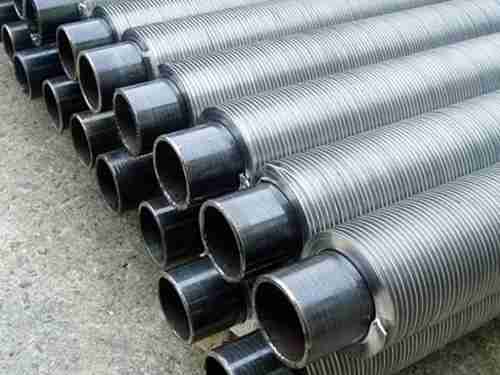Coatings and Linings
Coating process
Large-bore piping is often exposed to extreme environments during its decades-long service life. Therefore, reliable coatings for protection against corrosion and mechanical damage are essential in most cases.
We provide coatings and/or linings for our pipelines according to customer requirements and/or applicable standards. Our products include:*
polyethylene coating
polypropylene coating
Fusion Bonded Epoxy
Our pipes can be high pressure water scrubbed prior to coating/lining.
In addition to passive corrosion protection, epoxy linings minimize surface roughness (and thus flow resistance) on the inner surface of the pipe, which is particularly beneficial for gas pipelines.
Other coatings and linings are available upon request.
Polyethylene (PE) coating
Before painting, the pipes are dried, externally shot-blasted to SA 2.5 requirements and induction heated to approx. 220 °C. This is followed by an electrostatically sprayed epoxy (EP) powder primer at a thickness of 60 to 255 µm. The EP is then wound with an adhesive foil approximately 125 to 400 µm thick. Finally, wrap the PE foil over the adhesive. Tube ends are not coated to provide temporary corrosion protection if required. As an additional protection against rust creep during long-term on-site storage, the transition area from the PE chamfer to the bare pipe end can be provided with a bitumen coating.
Polypropylene (PP) coating
At service temperatures above 80 °C, the indentation resistance of the coating becomes increasingly important. In this case we recommend a three-layer coating system where the third layer consists of polypropylene. In all other respects the construction of the three-layer PP coating system is identical to the three-layer PE coating system. Here too, the pipe ends are uncoated, which provides temporary corrosion protection. A bituminous coating can be applied to the transition area from the PP chamfer to the bare pipe end.
Fusion Bonded Epoxy (FBE)
Epoxy powder is electrostatically applied to the pipe surface which has previously been shot peened to SA 2.5 and induction heated to 240 °C.
epoxy lining
API RP 5L2 epoxy resin lining is mainly used for gas pipelines. Its purpose is to reduce the surface roughness of the pipeline, thereby reducing the flow resistance inside the pipeline and improving the transmission efficiency.

 English
English Español
Español











